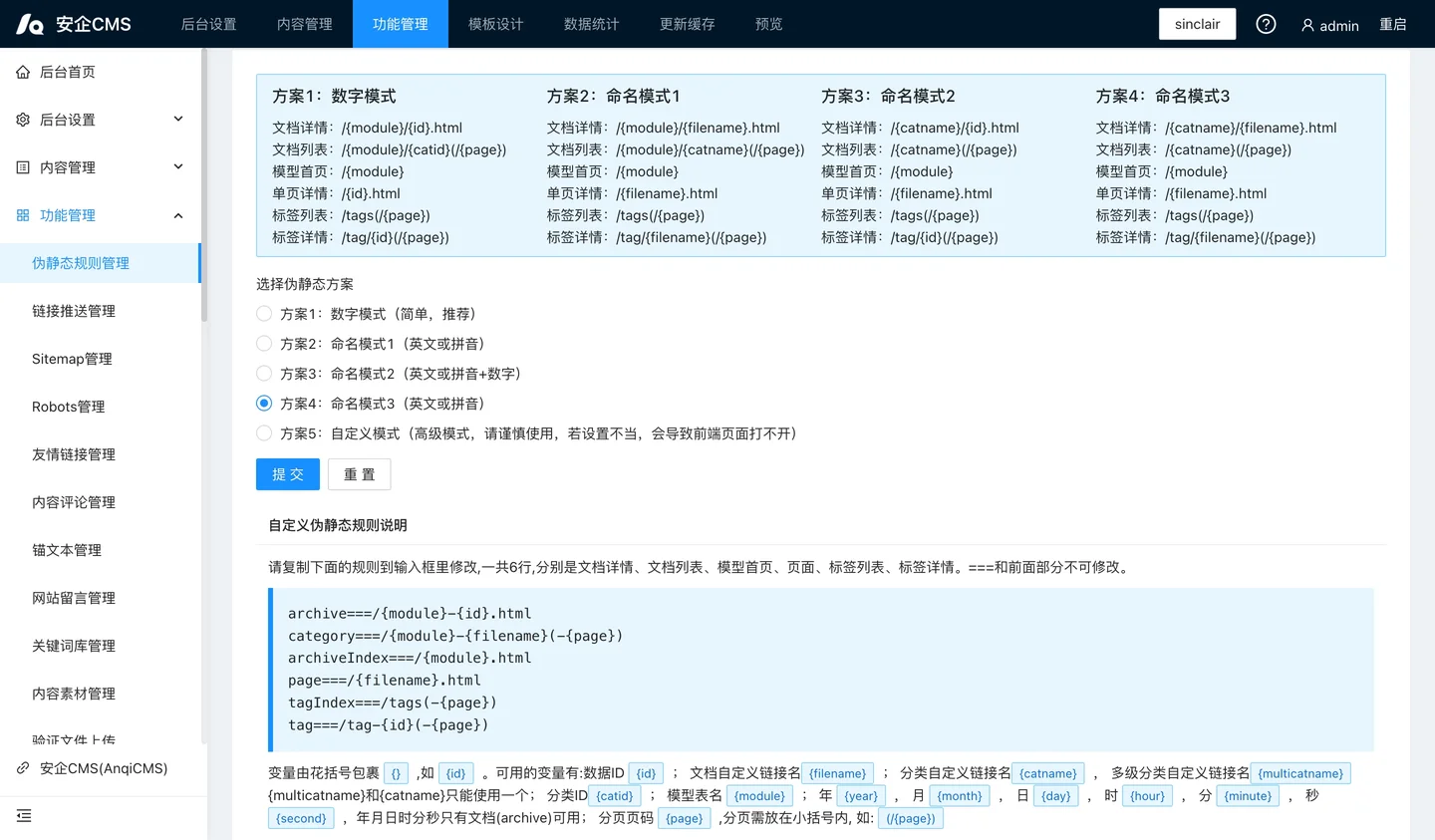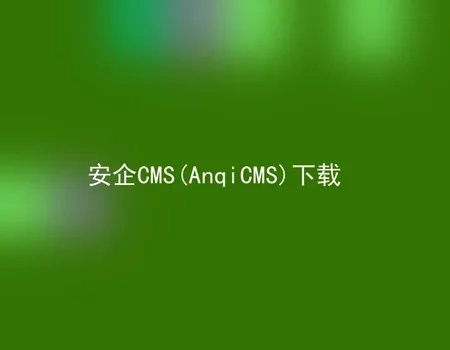The pseudo-static rule management feature can implement a custom URL rule display scheme to achieve the advantages of static page effects, while ensuring the need for real-time content updates.Helps to link personalization, enhance the friendly aspect (SEO) of search engines, and make URLs beautiful, etc.
Plan 1: Digital mode
Plan 1 is a minimalist URL rule, displayed through ID, with a short URL length, and is widely used by domestic websites.
Document Details: /{module}/{id}.html
Document List: /{module}/{catid}(/{page})
Model Homepage: /{module}
Single Page Detail: /{id}.html
Tag List: /tags(/{page})
Tag Details: /tag/{id}(/{page})
Plan 2: Naming Pattern 1
Plan 2 naming pattern, suitable for using different catalogs for articles of different models. By default, the pinyin of the title will be used as the URL. It is widely used on domestic sites and foreign trade websites.
Document Details: /{module}/{filename}.html
Document List: /{module}/{catname}(/{page})
Model Homepage: /{module}
Single Page Detail: /{filename}.html
Tag List: /tags(/{page})
Tag Details: /tag/{filename}(/{page})
Plan 3: Naming Pattern 2
Plan 3 combines naming and numeric patterns, which is relatively common on domestic websites.
Document details: /{catname}/{id}.html
Document List: /{catname}(/{page})
Model Homepage: /{module}
Single Page Detail: /{filename}.html
Tag List: /tags(/{page})
Tag Details: /tag/{id}(/{page})
Plan 4: Naming Pattern 3
Plan 4, based on the naming pattern of Plan 2, has been changed to display different URL directories according to different categories, with the purpose of classifying articles by category.Common in foreign trade websites.
Document Details: /{catname}/{filename}.html
Document List: /{catname}(/{page})
Model Homepage: /{module}
Single Page Detail: /{filename}.html
Tag List: /tags(/{page})
Tag Details: /tag/{filename}(/{page})
Plan 5: Custom Mode (Advanced Mode)
Plan 5 belongs to the advanced mode, operating Plan 5 requires careful handling. Improper settings can lead to the front-end page not being accessible.
Description of custom rewrite rule
Custom rules currently allow the free setting of URL rules for 6 types of link types, namely document details, document list, model homepage, page, tag list, and tag details.===And the preceding part cannot be modified.
archive===/{module}-{id}.html
category===/{module}-{filename}(-{page})
archiveIndex===/{module}.html
page===/{filename}.html
tagIndex===/tags(-{page})
tag===/tag-{id}(-{page})
Custom static rule variables
Plan 5 custom rules support the free combination of several built-in variables.{}For example,{id}.
The available variables include:
- Data ID
{id}; - Document custom link name
{filename}; - Category Custom Link Name
{catname}; - Multi-level Category Custom Link Name
{multicatname},{multicatname}And{catname}Only one can be used; - Category ID
{catid}; - Model Table Name
{module}; - Year
{year}, Month{month}, Day{day}, Hour{hour}Comma, section{minute}Comma, second{second}Comma, year, month, day, hour, minute, second are only available in documents (archive); - Page number
{page}Comma, page number should be placed within parentheses, e.g.:(/{page}).






